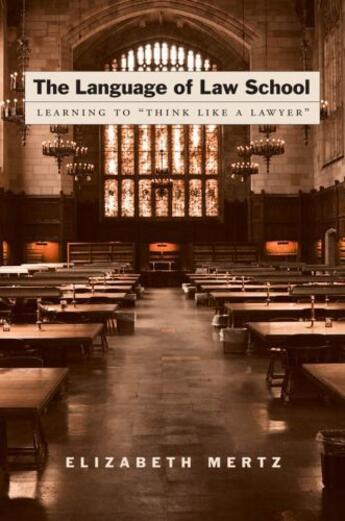-
Nombre de pages : (-)
-
Collection :
(-)
-
Genre :
(-)
-
Thème :
Non attribué
-
Prix littéraire(s) :
(-)
Résumé:
Anyone who has attended law school knows that it invokes an important intellectual transformation, frequently referred to as "learning to think like a lawyer". This process, which forces students to think and talk in radically new and different ways about conflicts, is directed by professors in... Voir plus
Anyone who has attended law school knows that it invokes an important intellectual transformation, frequently referred to as "learning to think like a lawyer". This process, which forces students to think and talk in radically new and different ways about conflicts, is directed by professors in the course of their lectures and examinations, and conducted via spoken and written language. Beth Mertz's book is the first study to truly delve into that language to reveal the complexities of how this process takes place. Mertz bases her linguistic study on tape recordings from her first year Contracts courses in eight different law schools. She knows how all these schools employ the Socratic method between teacher and student, forcing the student to shift away from moral and emotional terms in thinking about conflict, toward frameworks of legal authority instead. This move away from moral frameworks is key, she says, arguing that it represents an underlying world view at the core not just of law education, but for better or worse, of the entire US legal system - which, while providing a useful source of legitimacy and a means to process conflict, fails to deal systematically with aspects of fairness and social justice. The latter part of her study shows how differences in race and gender makeup among law students and professors can subtly alter this process. Written within the tradition of anthropological lingustics, Mertz's work - the first to study law school in this sort of detail - will appeal to a wide spectrum of readers interested in the intersection of law, language, and society: sociolinguists; anthropologists; feminist, race, and social theorists, and law professors.
Donner votre avis














